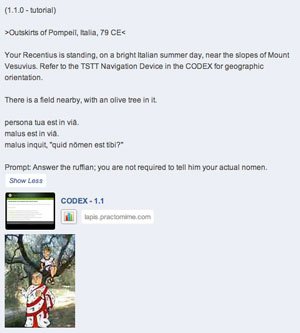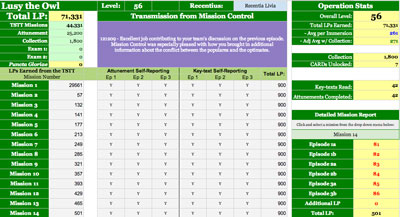We’ve devised a mechanic that draws heavily upon the grind in video games — namely the need to put in the time and effort in order to gain abilities, gear, or knowledge that will help achieve victory conditions at a later point. This mechanic is called the Carta Collectonis (Collection Sheet), and by virtue of it, students collect words from the texts they see, according to the rules of the Latin language. Operatives can ‘claim’ any word that they encounter and put it in the appropriate list in their operative dossier. The students are building recognition of case and verb endings, self-generating valuable vocabulary lists, and doing this in the context of the immersion.
So now the question remains: where’s the incentive to take part in this grind? For a lot of students, who have taken Latin courses over the years, the incentive to build out lists that may look similar to the one referenced above was to get better grades on a quiz or a test. Build a vocabulary list, memorize the words on the list, regurgitate the words on a vocabulary quiz and bounce off happily with the A. However, as anyone in education will attest, ‘learning’ something for the sake of a quiz or a test isn’t actually learning. At best, the result is that the information gets stored in the short-term memory banks and dissipates rather quickly.

With the Carta Collectonis we've managed to create something entirely different. We've devised a reward system known as CARDs: Classical Attunement Reward Devices. These CARDs have Latinity Point values assigned to them. In addition, the CARDs are stored as a part of the student's dossier and become the driving mechanism through which the students participate in the in-class tournament version of CARD-tamen™.
Each CARD that the student unlocks through the carta collectionis allows them to use that CARD in the class tournaments to unlock the limited special editions of those CARDs.





